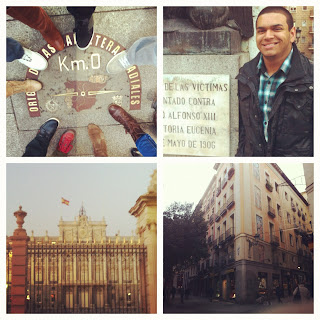With Spring Break coming up in the next few weeks, we thought we would offer our students a way to engage in volunteerism while taking a break from studies. Alternative Spring Breaks are trips where a group of college students engage in volunteer service that focus on a particular social issue such as poverty, the environment, or education reform. Students learn about the social issues and then perform week-long projects with local non-profit organizations. Alternative breaks are great because you get to travel and work with a group of peers for a week, all while creating an impact in the community!
What you stand to gain
· Travel You can travel to new communities and meet new people
· Involvement These trips are great ways to become more involved in school and in your community
· Savings Alternative Breaks are often considerably less expensive (if not totally free, covered by student government) than traditional Spring Break trips
· Experience Serving with an Alternative Spring Break is a great way to gain leadership experience
Quality components of an Alternative Break
Strong Direct Service: Should provide an opportunity for participants to engage in direct or “hands on” projects and activities that address unmet social needs, as determined by the community.
Orientation: Alternative breakers learn about the purposes and goals of their community partners with which they will be working.
Education: Breakers learn about the complexity of the social issue through reading materials, speaker panels, documentaries, and guest lecturers related to current trends and historical context. A strong educational foundation for the trip will contribute to a meaningful service experience.
Training: Breakers are provided with adequate skills necessary to carry out service projects during their trip. This may include learning physical skills, such as construction or maintenance skills, as well as interpersonal communication, such as interacting with children, sensitivity training, working with people with disabilities, trail building, etc.
Reflection: During the trip participants process the service work as it connects to the broader social issue. Groups set aside time for reflection to take place individually and as a group.
Reorientation: After students return to campus, reorientation activities allow participants to talk about issues with others on campus, learn about local volunteer and civic involvement opportunities, and brainstorm other means to benefit their local community. Reorientation (the post-trip application of the experience) is the essential purpose of an alternative break - to provide a platform for participants to work towards lifelong active citizenship.
Diversity and Social Justice: Strong alternative break programs include diverse representation of students from the campus community and direct exposure to studying social justice issues
Impact
Many
students who return from an alternative break experience consider it a life
changing event. Alternative break alumni have reported changing their major,
increasing their campus involvement, committing to continued community service,
actively staying updated on social issues, and joining a service program
post-graduation such as AmeriCorps, Peace Corps, or Teach for America. Many
return to participate and lead alternative break programs throughout their time
as students.An impact analysis conducted in 2001 by Dr. Pushkala Raman and her Marketing Research Class at Florida State University in conjunction with Break Away (www.alternativebreaks2013.org) revealed that there is overwhelming evidence to support the view that alternative breaks are “indeed contributing to the creating of active citizens.”
Many schools coordinate Alternative Spring Breaks for their students, so if you are interested in taking part in a trip this spring, check with your Student Government or Community Outreach office. You may also want to check out the following link for more organizations which offer their own Alternative Spring Breaks: studenttravel.about.com/od/springbreakvolunteers/qt/alternate_sprin.htm









